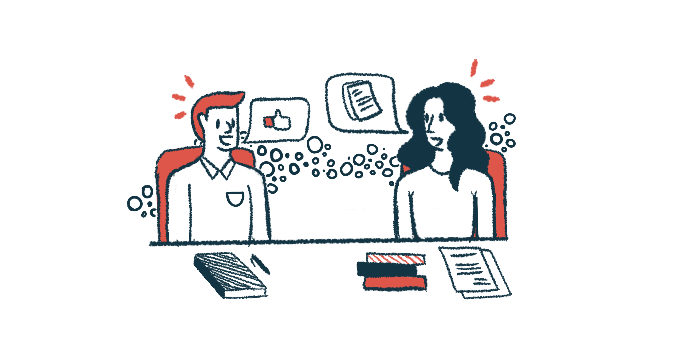FDA OKs Phase 3b trial design for NurOwn in less advanced ALS
In latest approval attempt, the therapy would cover smaller niche of patients
Written by |

The U.S. Food and Drug Administration (FDA) has agreed on the design of a Phase 3b trial that will test the investigational cell-based therapy NurOwn (debamestrocel) in amyotrophic lateral sclerosis (ALS) patients with less advanced disease.
The developer, BrainStorm Cell Therapeutics, plans to launch the trial this year, and should the data be positive, it will back an application seeking regulatory approval of the therapy.
The FDA reviewed the clinical trial protocol and statistical analyses under what’s known as a Special Protocol Assessment (SPA). Developers can request these evaluations to make sure the agency believes a trial’s design is generally adequate to support a future regulatory application. Still, the SPA agreement is not a guarantee of the FDA’s approval of all aspects of the trial or the therapy’s potential clearance.
“We are pleased to have reached an agreement with the FDA on key elements of the Phase 3b trial design that provides a potential path forward towards obtaining regulatory approval,” Chaim Lebovits, president and CEO of BrainStorm, said in a company press release.
“BrainStorm’s ultimate goal is to provide a new treatment option that can help patients afflicted with ALS, and we believe that the SPA potentially brings us one step closer to this goal,” Lebovits added.
BrainStorm’s new effort
The Phase 3b trial has been in the works since last year, when U.S. regulators indicated that evidence from completed clinical trials was insufficient to back NurOwn’s approval.
“We have worked with leading neurologists, scientists, and members of the ALS community to create a robust study designed to evaluate the effectiveness and safety of NurOwn,” said Stacy Lindborg, PhD and co-CEO of BrainStorm. “Over the past year, we’ve assembled an excellent team in clinical development that is highly qualified to execute this trial with excellence.”
NurOwn involves collecting a patient’s own mesenchymal stem cells (MSCs) from the bone marrow and engineering them in a lab to secrete large amounts of signaling molecules that promote nerve cell health.
The modified cells are then expanded and returned to the patient via injections into the spinal canal, where they’re expected to help protect the motor nerve cells that are characteristically lost in ALS, thereby slowing disease progression.
An earlier Phase 3 trial (NCT03280056) tested the therapy in adults with rapidly progressing ALS, most of whom had advanced disease. The trial failed to show a statistically significant slowing of disease progression with NurOwn when compared with a placebo.
Still, additional analyses indicated that disease progression was slowed among the subgroup of patients with less severe disease. BrainStorm applied for approval of NurOwn in 2022 on the basis of those promising data, but the FDA declined to consider the application, citing that the data were insufficient.
The company later used a special process called “file over protest” to proceed with its application anyway, but the company later withdrew its application after an FDA advisory committee echoed the FDA’s earlier sentiment.
BrainStorm has been communicating with FDA regulators since then, planning for the launch of the Phase 3b trial, which it hopes will provide the agency with the evidence needed to approve NurOwn.
2-part study planned
The multicenter Phase 3b trial, called BCT-006-US, will be a two-part study designed to evaluate NurOwn’s safety and efficacy in early ALS patients whose symptoms emerged within the last two years.
“This trial builds on valuable insights from our earlier studies and will enroll people living with ALS who are earlier in the course of their disease,” Lindborg noted.
Around 200 adult participants will be enrolled and randomly assigned to receive three injections of NurOwn or a placebo, given once every eight weeks for about six months. All participants will then receive another three injections of NurOwn in the study’s second part, which will also last six months.
Participants will also be allowed to continue treatment with approved standard-of-care ALS therapies throughout the study.
The trial’s main goal is to evaluate whether NurOwn slows disease progression compared with a placebo, as assessed by changes in the ALS Functional Rating Scale-Revised (ALSFRS-R) over the first 24 weeks.
Final conclusions on whether this goal was met will rely on a combined assessment of functional changes and survival, to take into account any deaths observed during the study.
Samples of blood and cerebrospinal fluid — the liquid that surrounds the brain and spinal cord — will be collected during the trial to evaluate biomarkers of neuroinflammation, neurodegeneration, and neuroprotection.
Safety will be monitored by an independent Data Monitoring Committee throughout the study, according to the company.
“Based on the evidence generated on NurOwn to date, we have a trial that we’re optimistic will be positive,” Lindborg said. “We’ve been parallel processing to enable us to deliver the first dose in the trial in 2024, and we’re anxious to get started.”






